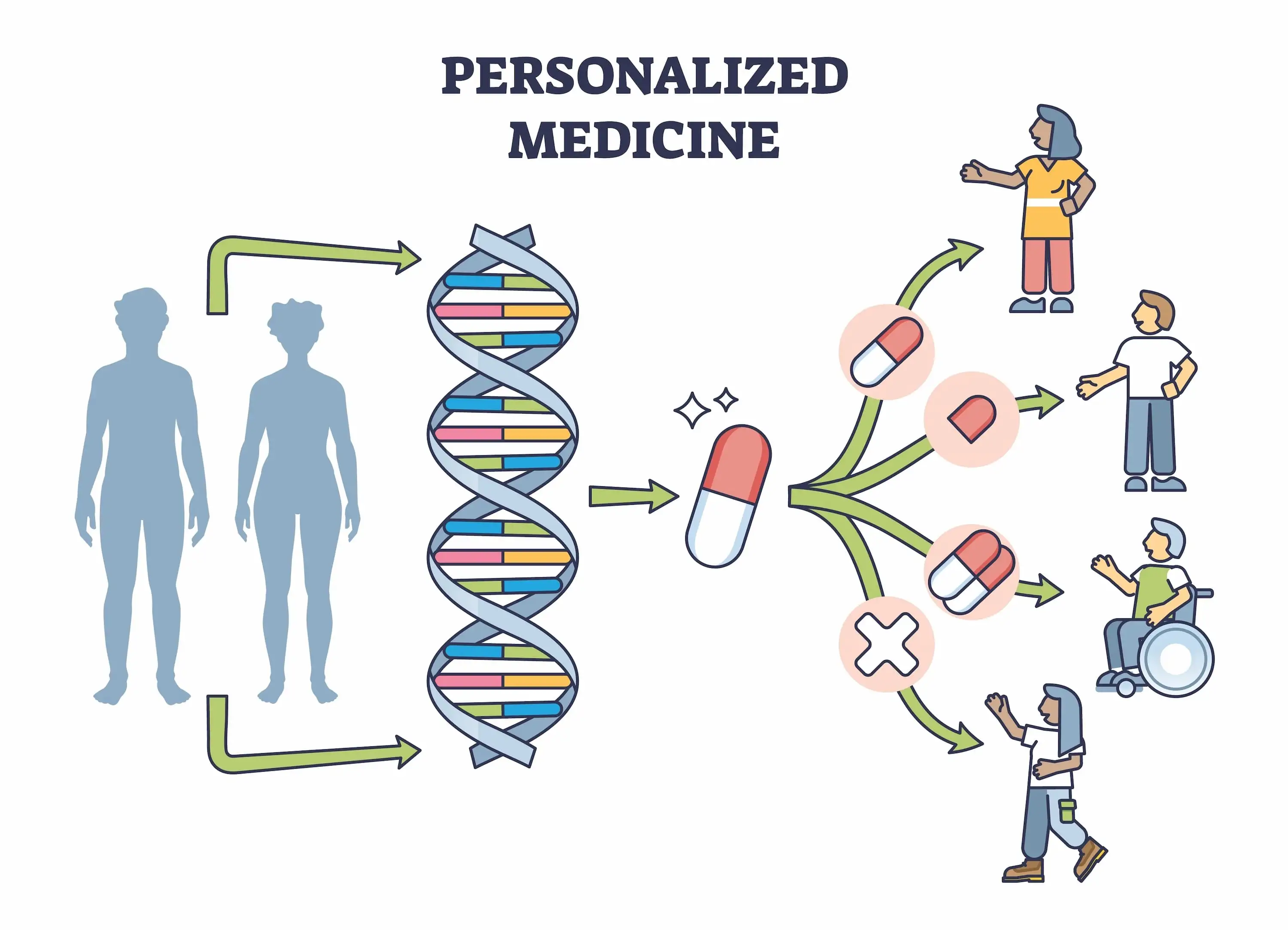
Precision medicine, often called personalized or individualized medicine, is an increasing focus in healthcare. Precision medicine takes into account the unique differences in each patient’s genetic makeup, environment, and lifestyle. Unlike traditional medicine, which typically employs a one-size-fits-all approach, precision medicine tailors treatments to each patient’s specific characteristics.
The Science Behind Precision Medicine
At the core of precision medicine is genomics—the study of an individual’s complete set of DNA, including all of their genes. Genomic data provides crucial insights into how different people respond to medications, their susceptibility to diseases, and other health-related traits. Collecting and analyzing this data involves advanced technologies like next-generation sequencing, which can read and interpret the human genome quickly and accurately.
Advancements in technology have been a game-changer for precision medicine. Artificial intelligence (AI) and machine learning algorithms analyze vast amounts of genomic data to identify patterns and make predictions about patient outcomes. Bioinformatics, which involves using computer technology to manage biological information, plays a crucial role in storing, retrieving, and analyzing the large datasets generated by genomic studies.
Additionally, RX development has been pivotal in creating more targeted and effective medications tailored to individual genetic profiles, enhancing the overall efficacy of treatments by focusing on patients sharing specific characteristics.
Genomics and Genetic Testing
Genetic testing is the most important prerequisite for precision medicine, and it was the growth of genetic testing that made precision medicine possible in the first place. Genetic testing includes a range of tests that analyze a person’s DNA to identify genetic variations that can affect their health. There are several types of genetic tests, including:
- Diagnostic Testing: Used to confirm or rule out a suspected genetic disorder.
- Predictive and Presymptomatic Testing: Determines the likelihood of developing a particular condition before symptoms appear.
- Carrier Testing: Identifies individuals who carry a gene mutation that could be passed on to their children.
The information gained from genetic testing helps doctors develop personalized treatment plans tailored to the genetic profile of each patient.
Pharmacogenomics
Pharmacogenomics examines how an individual’s genetic makeup influences their response to medications. This field merges pharmacology and genomics to create safe and effective medications and dosages that are customized to an individual’s genetic profile. For example, pharmacogenomic tests could help determine whether a patient is likely to benefit from a specific drug or if they are at risk of adverse reactions.
Environmental and Lifestyle Factors
In addition to genetic information, precision medicine considers environmental and lifestyle factors that influence health. Factors such as diet, exercise, exposure to toxins, and stress levels can significantly impact an individual’s health and treatment outcomes, and these reactions may themselves be dependent on genetic factors.
Benefits of Precision Medicine
One of the biggest benefits of precision medicine is its potential to improve treatment outcomes. By tailoring treatments to the unique genetic makeup of each patient, precision medicine can increase the efficacy of interventions and reduce the risk of adverse reactions. This approach ensures that patients receive the most appropriate therapies for their specific conditions, leading to better health outcomes.
Prevention and Early Detection
Precision medicine isn’t just about treatment; it’s also about prevention and early detection. Predictive analytics, powered by genomic data, can identify individuals at high risk for certain diseases, allowing for proactive measures to prevent illness before it occurs. Early detection through genetic screening can lead to timely interventions, improving the prognosis for many conditions.
Patient Empowerment
Precision medicine empowers patients by involving them in their healthcare decisions. Personalized health plans, informed by genetic and lifestyle information, enable patients to take a more active role in managing their health. This increased engagement can lead to better adherence to treatment plans and improved overall satisfaction with healthcare.
Challenges and Considerations
While precision medicine offers many benefits, it also raises important ethical and privacy concerns. Ethical standards about the storage and sharing of genetic information, which, despite its seemingly abstract natures, is an intensely personal and highly revealing data set, are still developing. Whatever their use, the collection and use of genetic data must be handled with the utmost care to protect patient confidentiality. Concerns such as data security, informed consent, and the risk of genetic discrimination must be tackled to ensure that the advantages of precision medicine are achieved without infringing on patient rights.
Accessibility and Cost
Currently, the cost of genetic testing and personalized treatments can be prohibitive for many patients. Efforts are underway to reduce these costs and make precision medicine more accessible. However, significant challenges remain in ensuring that all patients can benefit from these advancements, regardless of their economic status.
Current Applications
One of the most promising areas for precision medicine is cancer treatment. Oncologists use genetic information to identify the most effective therapies for each patient’s specific type of cancer. For example, certain genetic mutations can indicate whether a patient will respond well to targeted therapies or immunotherapies, significantly improving survival rates and quality of life.
Rare Genetic Disorders
Precision medicine has made a profound impact on the diagnosis and treatment of rare genetic disorders. By identifying the specific genetic mutations responsible for these conditions, doctors can develop targeted treatments that address the underlying causes.
Chronic Diseases
Chronic diseases, such as diabetes and cardiovascular conditions, also benefit from precision medicine. Personalized treatment plans, which include tailored medications and lifestyle recommendations, help manage these conditions more effectively.
Conclusion
Precision medicine represents a transformative approach to healthcare, offering the promise of more effective and personalized treatments. By leveraging genetic, environmental, and lifestyle information, precision medicine aims to improve treatment outcomes, prevent diseases, and empower patients. While challenges remain, the future of precision medicine is bright, with ongoing research and technological advancements paving the way for a new era of tailored healthcare.
